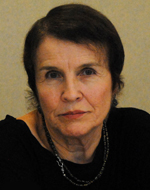Honoring the miners who laid the groundwork
|
|
|
Roberta Lynch |
A highlight for me of the recent AFSCME Council 31 biennial convention was our special guest speaker, United Mineworkers of America president, Cecil Roberts.
Cecil Roberts was born into a West Virginia coal mining family. At the age of 17, he went to work in the mines (the sixth successive generation of his family to do so) and rose from the ranks of local union officer to his current position as president of the UMWA.
A U.S. Army veteran of the Vietnam War, Roberts also serves as chairman of the AFL-CIO Union Veterans Council, a labor organization built to protect working-class veterans and advance their interests.
In his speech to convention delegates, he provided an overview of the early days of union organizing by miners doing some of the hardest, dirtiest and riskiest jobs of their time. Even before the Civil War, and over the ensuing decades, mineworkers literally fought and died, resolutely determined to secure dignity, respect and safety on the job.
Through sheer grit and unyielding resolve, they succeeded. Roberts pointed out that by 1935, the United Mineworkers of America was the biggest union in the entire world.
As such, it set the standard for workers all over this country, raising them out of extreme poverty to a family-supporting income, providing a measure of security in retirement, and assuring access to health care.
It was particularly meaningful to have President Roberts join us in Springfield because Illinois has strong UMWA roots—especially in central and southern Illinois—going back to the union’s earliest days. In fact, the great union leader and organizer, Mother Jones, is buried in the Union Miners Cemetery in Mount Olive, just 50 miles south of the hall where our convention delegates gathered.
The UMWA in southern Illinois laid a foundation of unionism, solidarity, and fortitude that profoundly shaped our own union. Like other public-sector unions in this country, AFSCME is a “young” union in the history of American labor, as public employees did not secure collective bargaining rights until decades after workers in the private sector gained such rights under the National Labor Relations Act.
It was only when the state of Illinois passed its own law guaranteeing bargaining rights to public workers in the 1980s that union organizing in the public sector exploded all across our state.
| UMWA President Cecil Roberts speaks at the Council 31 convention on Oct. 21. |
By that point in time, many mines in Illinois had already shut down and the mineworkers’ union was smaller and less influential here and across the country.
But the groundwork had been laid: The blood that was shed, the picket lines that were walked, the long strikes that were waged, the union principles that were so rigorously upheld—all of this and more was inculcated across generations.
When AFSCME organizers reached out to public employees throughout downstate Illinois in the early days of our union, those workers were more than ready to sign up. They already knew what unionism was all about.
Many Illinois AFSCME members, even today, are the children or grandchildren of union mineworkers. And even those of us who are not direct descendants are nonetheless their progeny as well.
That UMWA legacy, I truly believe, is one of the most important reasons that AFSCME here in Illinois has proven to be so unyielding in the face of countless assaults, so resolute in standing up for social and economic justice, and so unified in the face of all the efforts to divide us.
So we owe a great debt to the UMWA, one we can only repay by carrying on the struggles for human dignity on every front.
When Cecil Roberts spoke to the AFSCME Council 31 convention delegates about the vast influence of the UMWA in the 1930’s and its role in shaping the struggles of that time, he had this message for those assembled: Now it is up to you. Your union is the leader in these times. You will define the issues that are essential to the future of working families in our country. And it will be your work, your commitment, your determination that will shape what that future holds.




